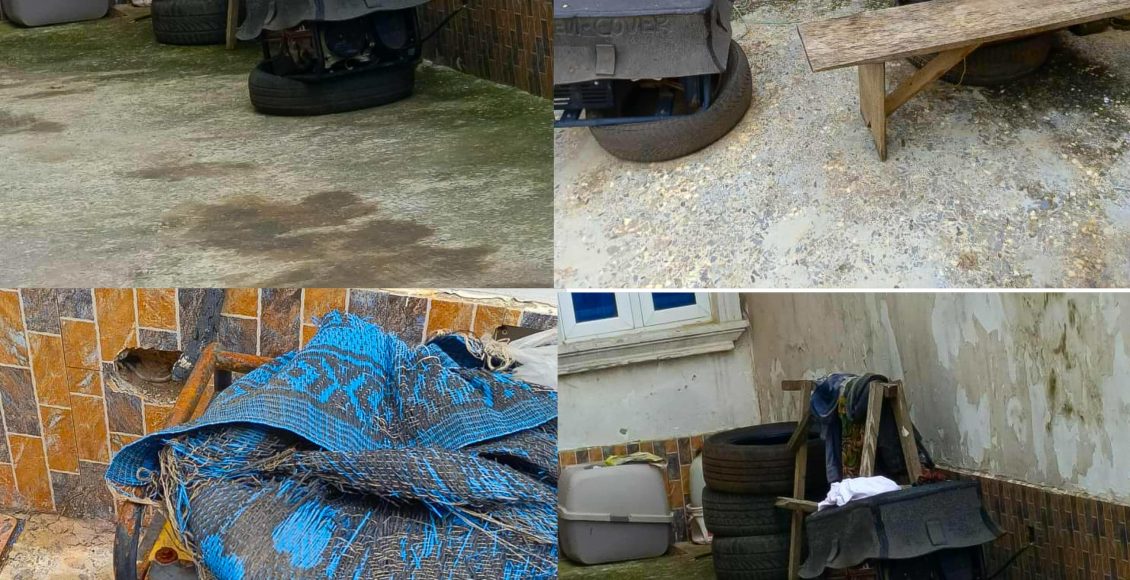[SPECIAL REPORT] ‘30,000 deaths yearly in Lagos,’ unravelling generator hazards, need for sustainable energy
Many were taken aback early this year when the Lagos State Government publicly admitted that over 30,000 deaths in the state annually are linked to exposure to generator fumes.
The state Commissioner for Energy and Mineral Resources, Mr Biodun Ogunleye, made this known at the 2025 Lagos Energy Summit, held on April April 15, 2025.
Describing the situation as dire and unsustainable, he called for urgent and coordinated action to reduce Lagos’ heavy dependence on fossil fuel-powered generators, which he said remain a major threat to public health and the environment.
Across Nigeria, the relentless hum of generators has become a norm. This persistent background noise is not merely an inconvenience but a stark reminder of our nation’s overreliance on these machines for power.
From bustling cities to remote villages, the familiar sound of a diesel/petrol power generator cuts through every conversation, invades every quiet moment, and shapes every thought and feeling.

The impact of generator overreliance has much darker implications than just annoyance alone. Right now, many cities and towns in Nigeria are experiencing a major public health crisis due to the constant use of personal generators. In 2018, a study conducted by the World Bank in Lagos revealed that generators were the third largest contributor to air pollution, behind transport and industrial emissions. The same study also highlighted that air pollution led to $2.1 billion in losses within a single year due to illness and premature death.
Nigerians’ over reliance on generators is not willful. Many can’t even stand the noise and constant need for repairs but the epileptic power supply leave them with no choice.
Aside from carbon monoxide poisoning deaths caused by the killer generator fumes, it is also responsible for air pollution and climate change in the state.
Already, Lagos has an unhealthy air pollution level, with an average air quality index of 154 US AQI, according to iqair.com.
In 2024, IQAir ranked Nigeria the 11th most polluted country in the world based on annual average PM2.5 concentration.
Speaking at the event, Ogunleye said Lagos is home to an estimated 4.5 million generators, widely used in homes, markets, and Micro, Small and Medium Enterprises. These, he said, consume about 16 billion litres of fuel yearly, costing residents around N14tn at the current price of N900 per litre.
“This widespread usage contributes to the release of 38 million tonnes of carbon dioxide every year, surpassing the emissions of entire countries like Togo, Rwanda, and Gabon. This is more than just an energy issue; it’s a public health emergency,” he said.
Sleepless Nights, Strained Minds
Mr. Tunde, a secondary school teacher, told NewsClick Nigeria that the sound makes preparing lesson notes and marking scripts at home nearly impossible. “During exam periods, when I most need silence, the noise heightens my stress,” he said. “Some nights, I just pack my things and stay at my brother’s for peace of mind.”
For Ahmed, a university student, the challenge is academic survival. Living in a hostel with a generator right outside his window, he endures broken sleep and restless nights. “During exams, my anxiety shoots up. I escape to the library for quiet — it’s the only place I can focus,” he admitted.
When work and noise collide
For home-based workers, the generator problem strikes directly at their livelihoods. Fashion designer Mrs. Chioma struggles to keep her creative flow when a neighbour’s machine rattles her home. “Even with headphones, I still feel drained after a few hours,” she said.
Blessing, who runs a small business from home, says client calls are exhausting when multiple generators run at once. “It feels like the whole environment is vibrating,” she said. She now schedules calls during the few hours when her neighbours’ machines are silent.
‘I better pass my neighbour’
In some areas, the competition over whose generator is loudest has become a nightly ordeal. “It’s almost impossible to rest or read,” said Emeka Nwosu. “When our transformer failed and outages increased, I became more tense and irritable.”
Funke Adeyemi, has learned to live with it, even though the noise disturbs her online meetings and ruins her sleep. “Everyone relies on generators. The noise is unavoidable,” she sighed.
Others, like Mrs. Afariogun, a teacher in Omole Ojodu, feel trapped by proximity. “My neighbour’s generator is right behind my bedroom window. Sometimes I pray it won’t start,” she said.
The mental health toll
Clinical psychologist, Dr. Adeyemi in an interview with NewsClick Nigeria warns that such constant noise exposure is no small matter. “It increases stress levels, disrupts sleep, and contributes to anxiety and irritability,” he said. “Long-term, people can develop sleep disorders like insomnia.”
Some residents, like Miss Boluwatife Ogongo, already feel the emotional effects. “It worsens my insomnia and makes my chest feel tight when I’m anxious,” she said. Others, like Miss Blessing Oyedepo, say it causes irritation, discomfort, and even tears.
Generators should be placed five metres away from living spaces – Medical practitioners
While the noise is draining, doctors say the fumes are deadly. The doctors in their different submissions told NewsClick Nigeria that while using generators in itself is not bad, however, keeping it close to living places where the noise and fume can easily penetrate would be suicidal.
Medical practitioner Dr. Lanre has treated patients suffering dizziness, nausea, and breathlessness after inhaling carbon monoxide. “I’ve seen fatalities when generators were kept too close to sleeping areas,” he said.
Dr. Adefemi Olasunkanmi explained that acute effects include poisoning, asthma attacks, and heart failure, while chronic exposure can cause lung disease, cancer, and even blindness. “Generators should be at least five metres away from living spaces,” he warned.
Dr. Callista echoed the urgency: “Carbon monoxide is colourless, odourless, and deadly. Too many people don’t realise they’re being poisoned until it’s too late.”
What we’re doing to help residents, organisations transition seamlessly to clean energy – Lagos State Government
Meanwhile, the Lagos State Government has it is doing everything within it’s power to help residents and organisations transition effortlessly to clean energy.
The General Manager, Lagos State Environmental Protection Agency (LASEPA), Tunde Ajayi in an exclusive interview with NewsClick Nigeria at the recently concluded Lagos Green Economy Forum said the state is actively leading the transition process. He said all the ministries have green projects ongoing and as it stands over 200 public schools in the state have been pulled off the grid.
“On generators, again, when people are converting they’ll dump their generators and use green options. And we’ve done this with several markets. If you look above the bridge in computer village, if you look above the roof, you’ll say a lot of places where you have solar panels and that’s an initiative that government drove deliberately. Also if you go round the city, most of the street lights are solar-powered. More than 200 public schools in Lagos have been taken off the grid. They all use solar panels. That is a massive green project. So, Lagos is not playing, Lagos has shown workings and will continue to do so,” he said.
Governor Babajide Sanwo-Olu in his keynote address at 2025 Lagos Energy Summit, reaffirmed his administration’s commitment to transitioning to cleaner, more sustainable energy sources.
He said although Lagosians are already investing in electricity, the efforts are disjointed and inefficient.
“We are generating electricity, yes, but the way we are doing it is neither centralised nor sustainable,” Sanwo-Olu said.
He added the state is rolling out an ambitious energy transition plan aimed at building a 24/7 economy powered by reliable and renewable electricity.
Sanwo-Olu noted that some of the initiatives include retrofitting 22,000 streetlights to boost energy efficiency, implementing the Lagos Electricity Law signed in December 2024, launching the Lagos Gas Master Plan and Strategic Implementation Plan, updating the Integrated Resource Plan, and creating a comprehensive electricity policy.
“These are not just policies; they are a roadmap to Lagos Vision 2030 – a future of clean, reliable, and affordable electricity for all,” the governor said.
He further revealed that 72 per cent of households in Lagos own at least one generator, 94 per cent of MSMEs depend on them, and 76 per cent of market clusters cannot function without them — figures he said highlight the urgency for sustainable alternatives.
Sanwo-Olu, while closing the summit, expressed optimism about the state’s trajectory, stating that the state is positioning itself as Africa’s leading destination for energy investments and a model for sub-national energy transitions globally.
“We are building a Lagos where students, artisans and entrepreneurs can thrive, powered by electricity that is clean, dependable, and affordable,” he said.



